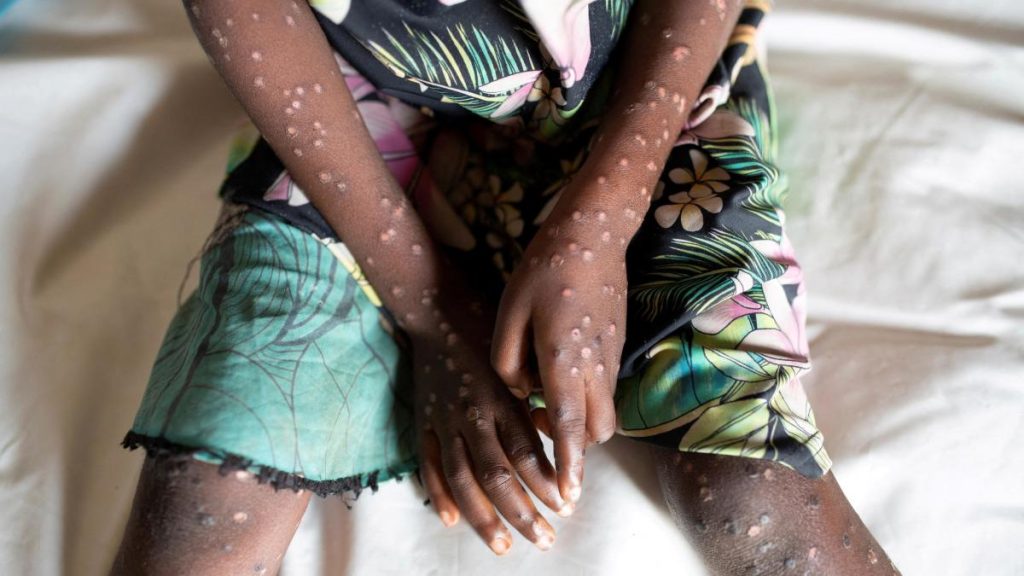The Democratic Republic of Congo (DRC) has reported that an ongoing mpox outbreak has claimed 548 lives this year, while Sweden confirmed its first case of a more severe variant, marking the virus’s first detection outside Africa.
The World Health Organisation (WHO) declared a global public health emergency on Wednesday, driven by rising mpox cases in Africa, particularly in the DRC, and concerns about the virus spreading to neighbouring countries.
DRC Health Minister Samuel-Roger Kamba announced that the country has “recorded 15,664 suspected cases and 548 deaths since the start of the year,” with all 26 of its provinces affected. The most impacted regions include South Kivu, North Kivu, Tshopo, Equateur, North Ubangi, Tshuapa, Mongala, and Sankuru.
To counter the outbreak, the DRC government has implemented a national strategic plan for mpox vaccination and enhanced disease monitoring at borders and checkpoints. Additionally, working groups have been formed to strengthen contact tracing and mobilise resources to maintain control of the epidemic.

In Sweden, the Public Health Agency confirmed the first case of the Clade 1b variant, which has caused the current surge in the DRC since September 2023. The case involves a traveller who contracted the virus during a visit to an area of Africa experiencing a significant outbreak, according to state epidemiologist Magnus Gisslen.
Despite this development, Sweden’s Public Health Agency reassured the public that the general risk remains low, a view echoed by the European Centre for Disease Prevention and Control (ECDC).
Meanwhile, the US Department of Health announced plans to donate 50,000 doses of the FDA-approved JYNNEOS vaccine to the DRC, emphasising that “vaccination will be a critical element in addressing this outbreak.”
Danish pharmaceutical company Bavarian Nordic, which produces the vaccine, stated it could deliver up to 10 million doses by 2025.
The WHO’s global emergency declaration came a day after the African Union’s health authority issued its own emergency alert over the expanding outbreak. Mpox, previously known as monkeypox, was first identified in humans in 1970 in what is now the DRC. It is a viral infection transmitted from animals to humans but can also spread through close human contact, causing fever, muscle pain, and boil-like skin lesions.
A global mpox outbreak in 2022 predominantly affected gay and bisexual men, driven by the clade 2b subclade. This outbreak resulted in approximately 140 deaths from 90,000 cases before largely subsiding. However, the Clade 1b variant currently affecting the DRC causes more severe symptoms and has a higher fatality rate.


